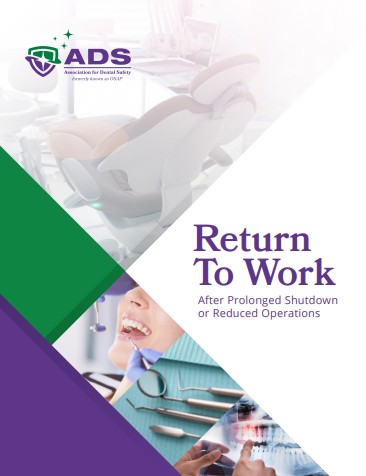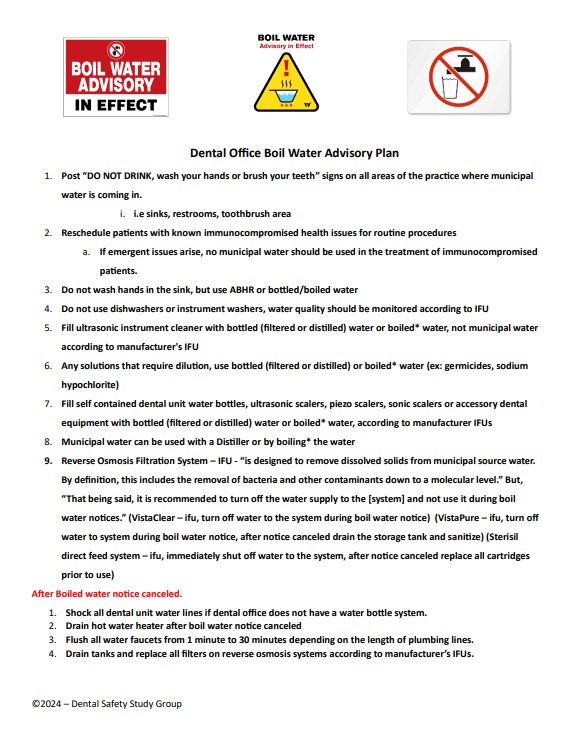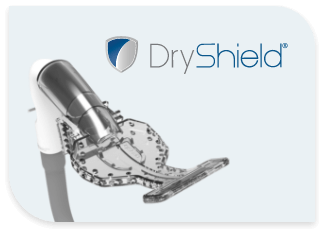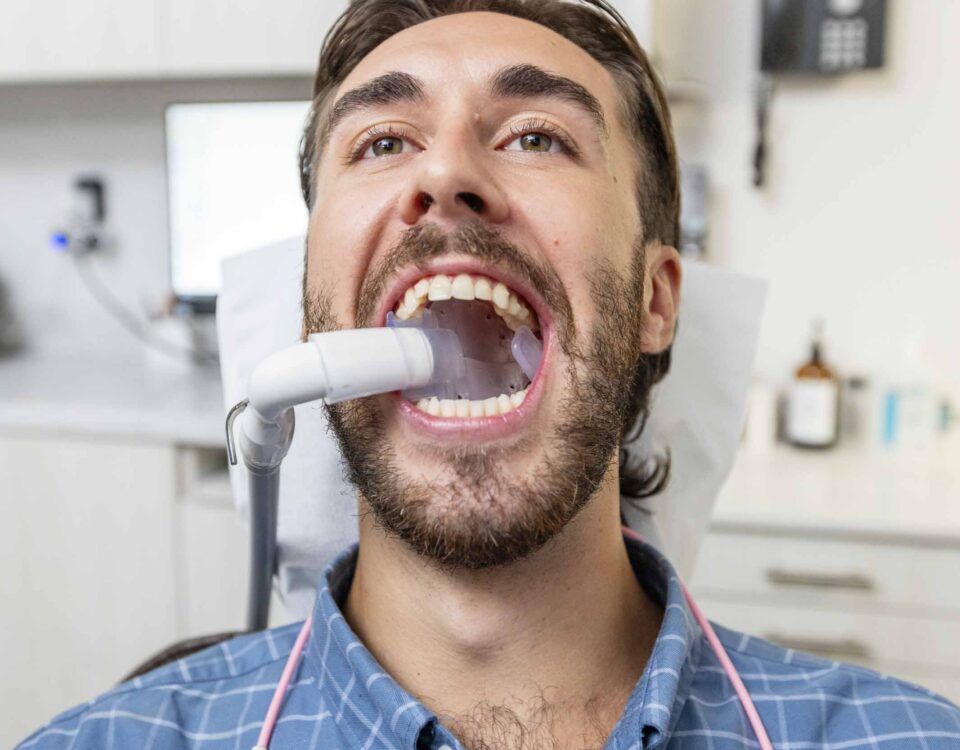Texas Floods & Dental Water Safety: What Every Practice Needs to Know Now
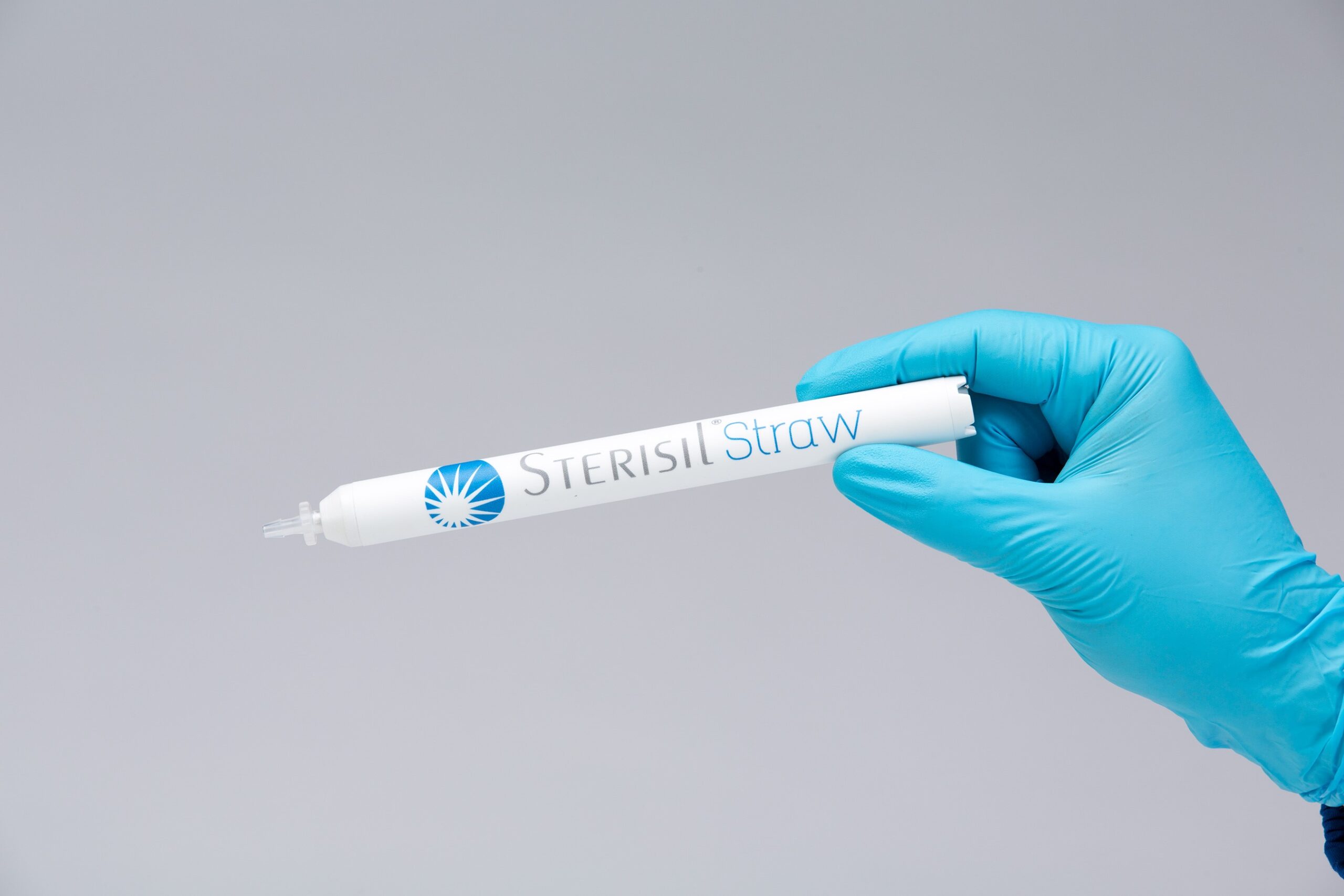
Silver Vs. Iodine: Choosing the Best Dental Waterline Treatment
July 11, 2025
What Makes DryShield Different? A First-Time Buyer’s Guide to Choosing the Right Dental Isolation System
July 16, 2025Texas Floods & Dental Water Safety: What Every Practice Needs to Know Now
When historic floods swept across Texas earlier this month, they didn’t just affect roads and homes — they disrupted everyday care for thousands of dental patients. Many practices were forced to close, while others are now navigating boil water advisories, stagnant plumbing, and equipment downtime.
Dental water safety is often one of the last things people think about in an emergency, but it’s one of the first things that can put patients and staff at risk when reopening.
At Sterisil, we’ve been hearing from practices in affected areas about waterline concerns, from microbial contamination to high TDS (Total Dissolved Solids).
We’re here to help you navigate what’s happening; and we’re offering a free emergency waterline safety kit to support your safe return to care, which includes:
- Sterisil® FASTCheck15™
- Citrisil® Shock
Floods overwhelm local infrastructure — and dental waterlines aren’t immune. When municipal systems are compromised, a chain reaction follows:
Boil Water Advisories Are Issued
Boil water orders are typically triggered by a risk of microbial contamination. If a treatment plant fails or pipes rupture, harmful bacteria can enter the water supply, which includes the water flowing into your dental chair.
Waterlines Go Stagnant
If your practice has been closed for several days (or longer), your dental unit waterlines (DUWLs) have likely gone unused. Stagnant water is a breeding ground for biofilm, the slimy layer of bacteria that sticks to the walls of your lines.
TDS Levels Can Spike
Flooding doesn’t just introduce microbes; it can affect the TDS, or Total Dissolved Solids, in your water. High TDS can lead to:
- Ineffective waterline treatment (your straw may not be working properly)
- Scale buildup in autoclaves and delivery lines
- Shortened lifespan of your waterline equipment
Even if your practice is on municipal water, TDS levels can vary widely after a major weather event, and that can affect performance, and, as a result, compliance.

Why Testing Dental Waterlines After Flooding Is Non-Negotiable
Floodwaters introduce uncertainty; and when it comes to dental water, guessing is never good enough. Even if your water appears clean, microbial contamination may not be visible, and your system could be harboring biofilm or bacteria introduced during stagnation or municipal compromise.
Here's why microbial testing is crucial after a flood:
- Stagnant water = biofilm risk. Waterlines that haven’t been flushed for days or weeks are prime environments for biofilm formation — which can’t be seen, smelled, or removed without intervention.
- Boil water advisories signal contamination. If your region has been placed under a boil water order, there’s already a known or suspected breach in water quality. That risk extends directly into your dental units.
- Post-flood conditions vary from office to office. Every practice’s plumbing setup, location, and closure timeline is different, meaning one-size-fits-all assumptions simply don’t apply.
That’s why each Sterisil® Emergency Kit includes Sterisil® FASTCheck15™, our 15-minute, in-office microbial waterline test. It lets you:
- Validate the presence of contamination
- Make informed decisions about treatment
- Protect patients and staff before resuming care
Testing isn’t just a box to check; it’s your first line of defense.
Why Shocking Waterlines After a Flood Is Critical — Even If You’ve Treated Them Recently
Testing identifies microbial contamination, but shocking removes it. If your dental unit waterlines have gone unused or your water source has been compromised, shocking is essential, no matter how recently you treated your system.
Here’s why:
- Biofilm grows fast. In just a few days of stagnation, bacteria can begin adhering to tubing walls and forming protective layers that resist standard maintenance.
- Floods = unknown exposure. Flooding introduces new variables: contaminated municipal water, negative pressure events, and changes in flow — any of which could draw pathogens into your lines.
- Routine tablets aren’t enough after a flood. Continuous treatment straws and tablets are designed for maintenance, not to eliminate active contamination. That’s the job of a full-system shock.
Every emergency kit includes Citrisil® Shock Tablets, a proven broad-spectrum disinfectant for DUWLs. They’re fast-acting, effective, and CDC-recommended as part of waterline recovery after downtime or contamination.
When in doubt, test—then shock. It’s the safest path forward.
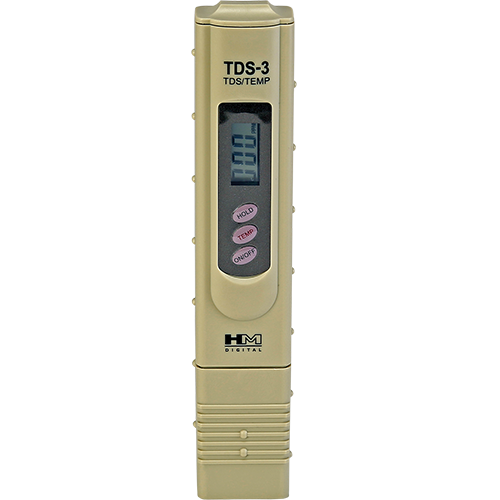
Understanding the Role of TDS in Dental Waterlines
Most practices focus on microbial contamination, and for good reason: the CDC recommends ≤500 CFU/mL for procedural water. But TDS matters, too.
Here’s why:
- TDS isn’t measured by your microbial test kits — so even if you pass a CFU test, high TDS could still be harming your equipment.
- High TDS can overwhelm waterline treatment straws, especially municipal straws not designed for >250 ppm.
- Mineral buildup from high TDS creates surfaces that make it easier for biofilm to grow.
Knowing your water’s TDS is what helps you choose the right daily treatment solution and reduce the risk of false confidence in your water quality. If you’ve tested, shocked, re-tested (and passed) but you’re still seeing contamination issues in your water, take a look at your area’s average TDS reading and contact us for further assistance.
Free Emergency Waterline Kits for Flood-Affected Texas Practices
To help practices reopen safely, Solmetex is offering complimentary waterline emergency kits to those affected by the Texas floods.
Each kit includes:
- Sterisil® FASTCheck15™: A 15-minute, pass/fail microbial test you can perform in-office
- Citrisil® Shock Tablets: Proven disinfection for stagnant or contaminated DUWLs
This package is designed to help you:
- Regain control of your water quality
- Meet CDC and ADS (formerly OSAP) infection control guidelines
- Resume patient care with confidence
(Available while supplies last)
What Else Should You Check Before Reopening?
If your office has been affected by the floods, it’s not just your waterlines you need to consider.
- Check your vacuum and amalgam separator systems. Flooding can impact suction function, vacuum pressure, and even result in backflow contamination.
- Test your water’s TDS. Use a simple TDS meter to measure dissolved solids and ensure you’re using the right straw or system. If you’re not sure how to do this, check your area’s average TDS reading and give us a call at 877.207.1551 Option 1 or email us at SterisilSupport@Solmetex.com so we can support you further.
- Watch for lingering microbial growth. Even if you’ve shocked your lines, biofilm can bounce back quickly if left untreated. A follow-up test is recommended.
Boil Water Advisory Guidance
For offices experiencing a boil-water advisory or boil-water order, we recommend the following actions:
Bottle Fill Office – Straws or Citrisil
Fill the dental bottles with purchased bottled or distilled water. If an office is using Sterisil Distilled Straws (S365 or S90), use purchased distilled water in their bottles.
Do not fill the bottles with municipal/tap water. Sterisil also recommends that the office not use municipal/tap water that has been filtered in the office as there is no guarantee the filtration system successfully removed all potentially harmful pathogens.
Proceed to use Sterisil Straws or Citrisil maintenance tablets according to their normal Instructions for Use.
Bottle Fill Office – Sterisil G4, G5, or AC+ System
If an office normally uses a Sterisil G4, G5, or AC+ System to fill their bottles, the office should immediately shut off the source water to the system. Use purchased bottled or distilled water in the bottles. Immediately contact a dealer to purchase Citrisil® tablets to treat the water in the dental bottles until the boil-water advisory/order is removed.
After the advisory/order is removed, Sterisil recommends replacing the pre-filter (if purchased) prior to re-opening the source water to the system.
Direct Feed Office – Sterisil G4, G5, or AC+ System
Immediately shut off the source water to the system upon notice of the advisory/order. The RO and Dental tanks should be able to supply dental water for several days. Do not use the system water for instrument washer or any other water use than for dental water in delivery units. Use distilled bottled water for washers or other equipment wherever possible to help reduce the amount of dental water needed.
Gradually reduced flow rate/pressure will indicate that the tanks are beginning to become depleted.
Direct Feed Office – Cartridges
Immediately shut off the source water to the dental chairs. Do not use direct feed water.
Once the advisory/order is removed replace all cartridges prior to use.
Note: Sterisil does not claim that Sterisil products will satisfactorily treat municipal water under a boil-water advisory or boil-water order.
Waterline testing is a vital step and is included in CDC and ADS (formerly OSAP) guidelines for dental unit waterline infection control. We continue to recommend that practices test waterlines regularly.
Additional guidance from ADS (formerly OSAP) can be found here: View Pdf
Return to Work Instructions after Prolonged Shutdown: ADS webpage | View PDF
You’re Focused on Recovery. We’re Focused on Helping You Get There.
Dental practices across Texas are already facing difficult decisions about scheduling, staffing, equipment, and patient safety. Waterline compliance shouldn’t be another hurdle. That’s why we’ve made this Disaster Assistance Program available to any affected practice, regardless of whether you’re a current customer.
If you’re unsure about your water quality, your system’s compatibility, or the right next step — contact our team directly.
Call: 877.207.1551 (Option 1)
Email: SterisilSupport@Solmetex.com
Final Thoughts: Don’t Open Without Testing
Clean water is the foundation of safe dentistry. If your waterlines have been idle, your town is under a boil order, or you don’t know your contamination level — pause and test first. It’s fast, easy, and free with Sterisil’s help.
Let’s make sure your practice is ready to safely serve your community again.





